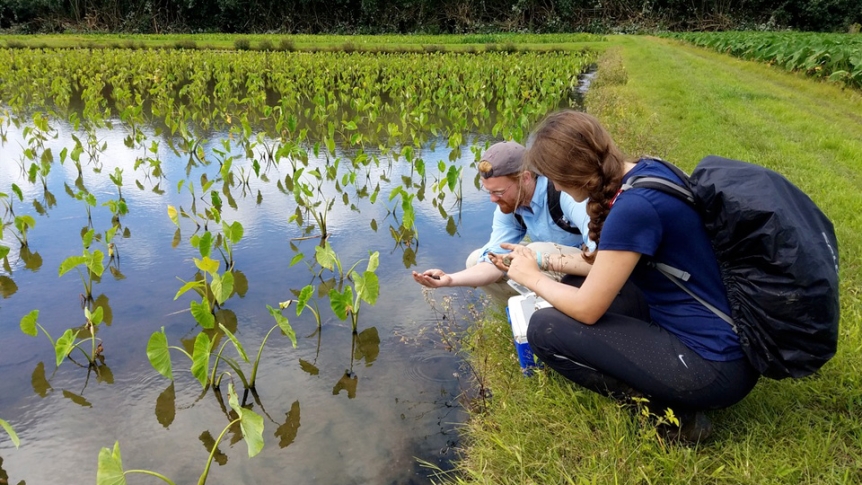Internships

Learn by Doing
One of the most exciting, and impactful, parts of your Middlebury experience can be an internship. Internships help you explore what motivates you, test career ideas, and build real-world skills that employers value.
Whether you’re following a long-held interest, connecting classroom learning to practice, or trying something completely new, internships let you move from curiosity to action. And you don’t have to do it alone. We are here to support you through the process.
Why Internships Matter
Internships give you the chance to:
- Explore career paths and industries that spark your interest
- Build skills like problem-solving, communication, teamwork, and leadership
- Gain hands-on experience you can talk about in interviews
- Clarify what you enjoy (and what you don’t), before graduation
A 2024 national employer survey shows that employers consistently seek candidates with strong transferable skills and internship experience. Completing one or two internships during your time at Middlebury can give you a powerful edge, no matter what path you pursue.
What Counts as an Internship at Middlebury?
At Middlebury, an internship is an experiential learning opportunity that:
- Provides meaningful, real-world experience beyond the classroom
- Includes training, supervision, and mentorship
- Helps you build career-ready skills in a professional setting
- Typically takes place during Winter Term and/or the summer
- May be paid or unpaid (summer)
- May earn academic credit during Winter Term (unpaid only)
- Can be local, domestic, or international
Ready to Get Started?
Here’s how to begin your internship search with confidence:
Explore Opportunities
- Search and apply for internships on Handshake (log in with your Middlebury email)
- Browse other Handshake resources, including:
- Past internship listings
- GoinGlobal (U.S. city and international guides)
- USAJobs, Jopwell, and Idealist
- Check out Middlebury’s cohort internship programs, including MiddWorks for Vermont, Privilege and Poverty, and more.
- Look into CCI-Select internships (summer only), which include guaranteed funding
Build strong application materials
- Stop by Quick Questions (no appointment needed) to work with a Peer Career Advisor on résumés, cover letters, and search strategies
- Review CCI’s guides, sample résumés, and career tools before you apply
- Schedule an appointment with a Career Advisor for tailored advice in your field of interest
Make connections
- Network with more than 7,000 alumni on Midd2Midd, and connect with over 48,000 Middlebury alumni on LinkedIn
- Talk with friends, professors, family members, and mentors. You never know where a conversation might lead
Reflect and refine
- Use CCI’s Self-Reflection and Career Exploration guides to clarify your interests, values, and goals
Need funding?
- If your summer internship is unpaid, apply for CCI funding for unpaid internships
Summer 2026 Opportunities
CCI offers three main ways to support your summer internship experience:
- MiddWorks for Vermont Internships(a cohort-based summer program)
- CCI-Select Internships
- Funding for internships you secure on your own

